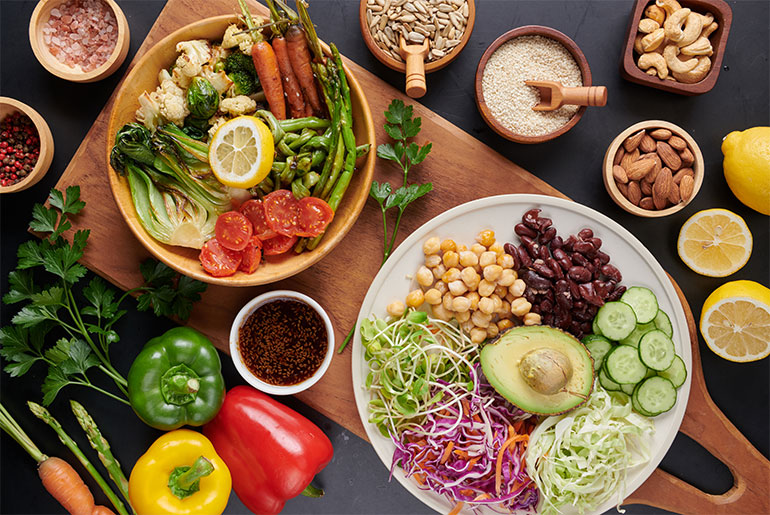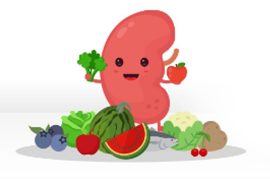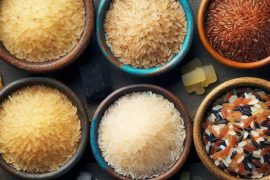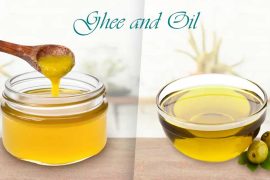Do you want to give your health a makeover, if yes then high-fibre foods are the ones that will certainly help to boost your health in a healthier way? Foods rich in fibre have an incredible potential to prevent all types of stomach problems. Studies have confirmed that eating a diet filled with fibre is a way to support the digestive system and hence helps keep everything running smoothly.
What is Fiber
Filling your plate with high-fibre foods is incredibly important for our body. Foods rich in fibre are simply indigestible parts of plant-based foods. It passes from our stomach in undigested form and finishes up in the colon by keeping our digestive system clean and healthy.
Certain sorts of dietary fibres help to lower our risk for heart disease, stroke, diabetes, and gut health. It also improves the health of our skin and facilitates us to lose weight. Besides, it also helps to even prevent colon cancer.
Proven Health Benefits of High Fiber Foods
- Maintains Bowel Health – A high-fibre foods may lower your risk of developing haemorrhoids and small pouches in your colon. Many studies have found that a high-fibre diet likely lowers the risk of colorectal cancer.
- Reduces Cholesterol – Soluble fibre found in beans, oats, flaxseed and oat bran can lower total blood cholesterol levels by lowering low-density lipoprotein, or bad cholesterol levels. Studies have also suggested that high-fibre foods may have other heart-health benefits, such as reducing blood pressure and inflammation.
- Controls Blood Sugar Levels – People who are diabetic, for them high fibre foods prove a boon. Fibre particularly soluble fibre can slow the absorption of sugar and help improve blood sugar levels. A healthy diet that includes insoluble fibre may also reduce the risk of developing type 2 diabetes.
- Allows To Maintain Healthy Weight – High-fibre foods like fruits and vegetables tend to be lower in calories. Also, fibre’s presence can slow digestion in the stomach to help you feel fuller for longer.
- Reduces Gastrointestinal Cancer Risk – High-fibre foods have protective effects against certain cancer types, including colon cancer. There are many reasons for this, including that some types of fibre, such as the pectin in apples, contain antioxidant-like properties. Antioxidants are substances in the human body that remove free radicals by donating an electron and hence protects the body from illnesses. To increase antioxidants in the body, a person’s diet is as important as anything else. Consumption of foods rich in antioxidants in the form of fruits and vegetables provides many useful antioxidants in the form of vitamins and minerals that the body cannot create on its own.
Best Fiber Foods for Your Dietary Intake
1.) Beans – Lentils and other beans are an easy way to sneak fibre into your diet in soups, stews and salads. Some beans, like edamame, which is a steamed soybean, are even a great fibre-filled snack. It has been observed that there are 9 grams of fibre in a half-cup serving of shelled edamame. All of these provide a source of plant protein, which is considered one of the essential high-fibre foods.
2.) Broccoli – Broccoli is also considered one of the high-fibre foods and is a type of cruciferous vegetable and one of the most nutrient-dense foods on the planet. It is loaded with vitamin C, vitamin K, folate, B vitamins, potassium, iron, and manganese and contains antioxidants and potent cancer-fighting nutrients. Broccoli is also relatively high in protein, compared with most vegetables.
3.) Berries – Berries get a lot of attention for their antioxidants, but they are full of fibre, too. Just a cup of fresh blueberries can give you almost 4 grams of fibre, and there is nearly the same amount of fibre in a cup of frozen unsweetened blueberries. Blackberries, strawberries and raspberries are also too considered as high-fibre foods
4.) Avocados – Avocados contributes to improved digestion, reduce blood sugar spikes, and aid weight loss. Avocados are a rich source of fibre and contain 7 grams of fibre per 100 grams. Avocados have both soluble and insoluble fibre. People who are suffering from poor digestion or constipation can benefit from eating avocados.
5.) Dried Fruits – Dried fruits are also treated as one of the high-fibre foods. Dried fruits like figs, prunes and dates can boost your fibre intake dramatically and are recommended for those struggling with occasional constipation. The sugar called sorbitol, which naturally occurs in these fruits helps your bowels and leads to more comfort. However, eating too many can lead to cramping or diarrhoea, so try a small serving and see how you feel once you have digested them.
Conclusion
Incorporating fibre in your diet is always a wise choice as far as health is concerned. You must always maintain a balance in fibre intake. We recommend that you should consult your doctor regards to incorporating fibre into your diet. Since dietary intake differs from person to person, it is advisable to consult a doctor or a medical practitioner, who could understand better regards to the relevant diets as well as how much fibre is ideal for you.
Disclaimer:
The information contained in this article is for educational and informational purposes only and is not intended as a health advice. We would ask you to consult a qualified professional or medical expert to gain additional knowledge before you choose to consume any product or perform any exercise.








